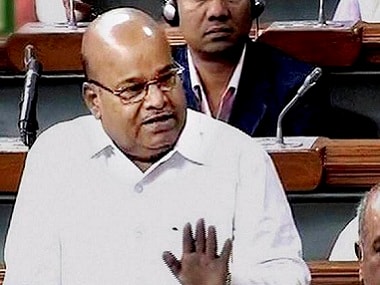The Lok Sabha unanimously passed the Constitution (123rd Amendment) Bill, 2017 on Thursday, making the National Commission for Backward Classes (NCBC) a constitutional body and granting it complete powers to safeguard the rights and interests of Other Backward Classes (OBC).
The bill, which was passed with all 406 members presented in the House voting in favour of it, brings the NCBC on par with the National Commision for Scheduled Castes (NCSC) and the National Commission for Scheduled Tribes (NCST).
After a debate that lasted for nearly five hours, the Bill which was pitched as an “alternative amendment” was passed with two-third majority, superceding the amendments adopted by the Rajya Sabha. The Indian Express reported that RSP’s NK Premachandran pointed out that this was the first time that an alternative amendment was brought in the Lower House.

Last year, the Rajya Sabha had made amendments like the increase of the three-member NCBC committee to five members to provide representation to a woman and a person from a minority community. It also mandated that the five members be from OBC communities.
An amendment that was voted out by the Lok Sabha was to give the states a significant role in making recommendations to the list of OBC. However, Social Justice and Empowerment Minister Thaawarchand Gehlot, who piloted the bill, assured the House that states will continue to have the right to prepare the state list, but if they want a certain community in the Central list, the Commission will take the final decision.
Gehlot also said that the suggestion for “religion-based reservation” in the composition of the commission was unconstitutional, Hindustan Times reported.
Gehlot also said that a committee under Justice G Rohini had been set up to examine sub-categorisation of OBCs.
Prime Minister Narendra Modi, who was present during the voting, congratulated social justice and empowerment minister Thawar Chand Gehlot for successfully piloting the bill.
The passage comes a day after the Union cabinet approved a bill to amend the Scheduled Castes/Scheduled Tribes (Prevention of Atrocities) Act to restore the original provisions of the law. The move followed widespread protests by Dalits groups, Opposition parties and the ruling BJP’s own allies over the watering down of some of its provisions.
Constitutional status to NCBC
The NCBC is a body set up under the National Commission for Backward Classes Act, 1993.
Before the amendment, it had the power to examine complaints regarding inclusion or exclusion of groups within the list of backward classes, and advise the Central government in this regard.
According to PRS Legislative, the bill seeks to establish the NCBC under the Constitution, and provide it with the authority to examine complaints and welfare measures regarding socially and educationally backward classes.
The Constitution Amendment Bill states that the President may specify the socially and educationally backward classes in the various states and union territories. He may do this in consultation with the governor of the concerned state. However, a law of Parliament will be required if the list of backward classes is to be amended.
Modified functions of the NCBC
The duties of the NCBC now include: Investigating and monitoring how the safeguards provided to the backward classes under the Constitution and other laws are being implemented; Inquiring into specific complaints regarding violation of rights; and advising and making recommendations on the socio-economic development of such classes.
The Central and state governments will be required to consult with the NCBC on all major policy matters affecting the socially and educationally backward classes.
PRS Legislative reported that the NCBC is set to have the powers of a civil court while investigating or inquiring into any complaints. These powers include: Summoning people and examining them on oath; requiring production of any document or public record; receiving evidence.
National Commission for Backward Classes Act, 1993
Section 3 of the Act provides that the Commission shall consist of five Members, comprising of a Chairperson who is or has been a judge of the Supreme Court or High Court; a social scientist; two persons, who have special knowledge in matters relating to backward classes; and a Member-Secretary, who is or has been an officer of the Centre in the rank of a Secretary.
source: Firstpost.com








































